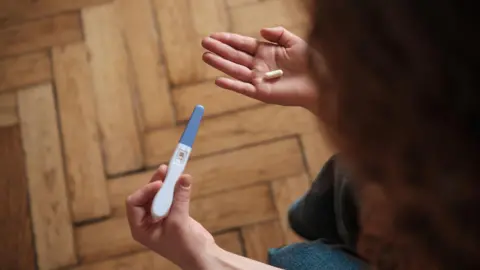On Tuesday, the House of Commons is set to engage in a pivotal debate concerning a proposed law aimed at decriminalizing abortion in England and Wales. The discussions are centered around rival amendments introduced by Labour Members of Parliament, Tonia Antoniazzi and Stella Creasy. These lawmakers are advocating for significant changes to the current legal framework surrounding abortion, which criminalizes the procedure under specific circumstances while allowing it up to 24 weeks of pregnancy.
Traditionally, the members of parliament (MPs) are permitted a free vote on issues related to abortion, inspecting issues without party allegiance. As such, Speaker Sir Lindsay Hoyle has the discretion to select one of the amendments, though it is anticipated that only one will proceed to a vote. This underlines the contentious nature of the issue as both the public and lawmakers grapple with the ethical, moral, and legal implications of abortion.
The existing law in England and Wales categorizes abortion as illegal but does allow it under certain conditions, particularly when there are risks to the woman’s life or if the pregnancy might have detrimental effects on her physical or mental health. Under the present law, two doctors must approve an abortion. This stipulation has been criticized for producing a bureaucratic barrier that many women find arduous and dehumanizing, particularly in cases involving vulnerable individuals.
Recent changes have permitted women to access abortion pills for terminating early pregnancies—those under 10 weeks—effectively modernizing some aspects of the service. However, troubling statistics have emerged reflecting the legal system’s scrutiny of women seeking abortions: 2022 saw over 252,122 abortions recorded, the highest figure since records were kept. Alarmingly, there have been instances of women facing legal action for attempting to self-manage their abortions, with reports indicating that police have scrutinized abortion providers regarding possible violations of the law.
Antoniazzi’s amendment addresses these concerns directly by seeking to prevent the investigation, arrest, or prosecution of women who terminate their pregnancies independently. She emphasizes that the investigations can be exceptionally distressing for women, many of whom may be victims of domestic abuse or coercion. Antoniazzi argues that these women often make choices in desperate circumstances, and that compassion and care are crucial rather than punitive measures.
Her amendment has garnered support from 176 MPs and major abortion services, but it has prompted criticism from organizations like the Society for the Protection of Unborn Children, which brands her proposal as dangerous and extreme, suggesting it effectively eliminates legal consequences for abortions.
In contrast, Stella Creasy’s amendment takes a different approach by proposing to enshrine access to abortion as a human right. While she also seeks to protect women from investigation, Creasy’s amendment broadens the scope to encompass protections for all individuals involved in providing safe and legal abortions. She argues that Antoniazzi’s proposal falls short, as it does not fully prevent investigations into medical professionals or partners of women who have had abortions.
Creasy’s amendment has attracted the backing of 108 MPs but lacks support from abortion service providers. Critics, including experts from the British Pregnancy Advisory Service, argue that such sweeping legal changes require a careful and nuanced approach. The Society for the Protection of Unborn Children has voiced strong opposition, arguing that these amendments could hinder justice for unborn fetuses, particularly in cases of abuse.
The upcoming debate is crucial, not only for its immediate impact on legislation but also as a reflection of shifting societal attitudes toward women’s rights and reproductive health in the UK. As the discussion unfolds, both proponents and opponents of the amendments will engage passionately, highlighting the complex moral landscape surrounding abortion rights. This legislative development will undoubtedly shape the future of reproductive healthcare in the UK and signal broader implications regarding women’s autonomy in their reproductive choices.



